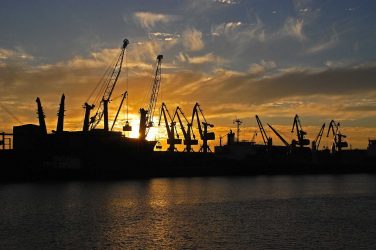 Brazilian President Michel Temer announced that Brazil’s government will “extraordinarily open” Brazil infrastructure to the private sector through concessions that are being examined by the Investment Partnerships Program (PPI).
Brazilian President Michel Temer announced that Brazil’s government will “extraordinarily open” Brazil infrastructure to the private sector through concessions that are being examined by the Investment Partnerships Program (PPI).
The statement was made during the program’s first meeting in which they have “examined which normative acts will be gradually introduced, as they reach consensus,” said Temer.
According to him, consistent studies were conducted into the opening to the private sector. “The government cannot do everything. The private sector has to be present to promote development and generate jobs in the country,” he added.
The list of the first initiatives to be launched to the private sector was released and includes concessions of airports in Porto Alegre, Salvador, Florianópolis, Fortaleza.

Bidding for concession will be published this year and the auction will be held in the first quarter of next year. They also plan for this year a bid for the concession of a fuel terminal in Santarém (in Pará state) and a grain terminal in Rio de Janeiro.
As for next year, they will also publish bids for concessions for five road sections in the states of Goiás, Minas Gerais and Rio Grande do Sul.
On the list of concessions for next year, there are also the North-South railway, which will pass through the states of São Paulo, Minas Gerais, Goiás and Tocantins; the so-called Ferrogrão, which will be the railway connecting Mato Grosso and Pará; and East-West Integration Railroad in Bahia state.
In 2016, they shall announce the fourth round of bidding for marginal fields of oil and natural gas under the concession regime. In 2017, they expect the 14th round of bidding for exploration of blocks of oil and natural gas under the concession regime, and the second round of bidding under the production sharing regime.
In the energy sector, it is also expected the sale of assets of the Mineral Resources Company Research, and the privatization of electricity companies of the states of Amazonas, Boa Vista, Acre, Alagoas, Piauí, and the power station of Rondônia.
Project Grow
The government has made some changes for the concession projects to the private sector. From now, bidding for concession will only be released after public debate and after approved by the Federal Court of Audits (TCU). Another change is that the bidding will be published in Portuguese and English, to attract foreign investment. The period for the bidding will be extended to 100 days, to attract a greater number of investors willing to participate.
According to the government, the measures are part of the Project Grow, which is part of the Investment Partnerships Program, and aim to offer to the private sector technically and economically feasible projects planned to improve the quality of service. The program also aims to generate jobs and recover economic growth.
The Investment Partnerships Program has 25 projects in transport, energy, and sanitation. According to Moreira Franco, executive secretary of the PPI, the PPI is being developed with the effort of various ministries and agencies on a task force “aimed at disentangling the concession process and improving Brazil’s infrastructure.”
ABr









